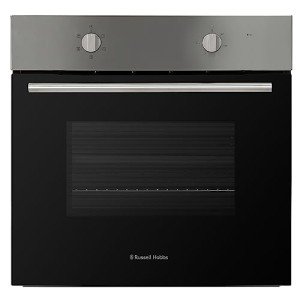See What Integrated Oven Tricks The Celebs Are Making Use Of
본문

The Integrated Oven: A Comprehensive Guide
In modern kitchen areas, the trend toward integrating appliances with cabinetry to produce a smooth appearance has gotten substantial traction. Amongst these essential kitchen tools, the integrated oven sticks out as a favored choice for numerous house owners and culinary enthusiasts. This short article explores the advantages, features, and considerations related to integrated ovens, along with answering frequently asked questions.
What is an Integrated Oven?
An integrated oven is a kind of built-in oven that is designed to be flush with kitchen cabinets. Unlike freestanding designs, which often stand out on their own, integrated electric ovens ovens are hidden or partially concealed, offering a smooth and cohesive visual to the kitchen area. These ovens are available in various styles, including single, double, and steam ovens, and can be integrated with shelves and cabinets for boosted storage.
Advantages of Integrated Ovens
Incorporating an oven into your kitchen design can use many benefits. Here are some advantages of selecting an integrated oven:
Space-saving Design:
- Perfect for smaller cooking areas, integrated ovens optimize area utilization, leaving more space for other appliances or storage.
Visual Appeal:
- The flush installation produces a structured, modern appearance that can raise the total atmosphere of a kitchen.
Customizability:
- Integrated ovens can typically be customized to match cabinetry or to consist of distinct functions such as pull-out racks.
Enhanced Functionality:
- Many integrated ovens come geared up with sophisticated cooking innovation, such as wise programs and convection heating, improving cooking results.
Increased Property Value:
- An integrated oven can improve the worth of a home, attracting potential buyers who are interested in modern-day, well-appointed kitchen areas.
Choosing the Right Integrated Oven
When choosing an integrated oven, various factors need to be considered to make sure that the design fits your cooking requirements and kitchen layout. Below are some essential factors to consider:
Size and Capacity:
- Check the measurements of your kitchen space. Standard sizes generally range from 60cm to 90cm bulit in oven width, with capabilities differing based on the number of dishes you generally prepare.
Type of Oven:
- Decide in between conventional, convection, and steam ovens. Stove are popular for their even heat circulation, while steam ovens retain moisture for better-flavored dishes.
Functions:
- Look for features that suit your cooking design. Some functionalities to think about include:
- Self-cleaning options
- Smart innovation integration
- Several cooking modes
- Safety features
Energy Efficiency:
- Opt for energy-efficient designs that take in less electrical energy while offering high efficiency.
Spending plan:
- Integrated ovens are available in different price ranges. Determine your budget plan while considering the longevity and durability of the device.
| Feature | Advised Model | Explanation |
|---|---|---|
| Self-Cleaning Function | Yes | Conserves time and effort preserving tidiness |
| Convection Cooking | Yes | Enhances heat circulation for even cooking |
| Smart Technology | Optional | Permits control from mobile phones or voice assistant |
| Several Cooking Modes | Yes | Adaptability in cooking different meals |
| Energy Rating | A/A+ | Ensures lower energy usage |
Installation and Maintenance of Integrated Ovens
Correct setup and maintenance are essential for optimum oven efficiency. Here are some steps to think about:
Installation Steps
- Preparation: Ensure you have all the needed tools and materials before beginning the installation.
- Step the Custom Space: Confirm the fit of the oven against the cabinets.
- Link to Power Supply: Consult an electrical expert for safe electrical connections.
- Leveling: Ensure the oven is level to avoid cooking disparities.
- Attach Cabinet Panels: If needed, connect ornamental panels for a personalized appearance.
Upkeep Tips
- Routine Cleaning: Frequent cleansing prevents food buildup and makes sure the oven runs effectively.
- Look for Damage: Inspect the door seals and interior for indications of damage frequently.
- Service Regularly: Schedule professional servicing to maintain efficiency and performance levels.
- Follow Operating Instructions: Always stick to maker guidelines for operation and upkeep.
Often Asked Questions (FAQs)
What is the difference in between a built-in oven and an integrated oven?
While both types are developed to suit cabinets, built in ovens for sale-in ovens can stick out slightly, while integrated ovens sit flush with surrounding kitchen cabinetry.
Are integrated ovens more expensive than conventional ovens?
Generally, integrated ovens can be more costly due to the design and functions that accommodate a smooth build into the kitchen.
Can I change my existing oven with an integrated oven?
Yes, however ensure to consider the size and any modifications needed for your cabinetry and kitchen layout.
The length of time do integrated ovens usually last?
With appropriate maintenance, integrated ovens can last anywhere from 10 to 15 years or longer.
Do integrated ovens require special installation?
Integrated ovens typically need expert installation to guarantee they are fitted properly with suitable connections and security measures.
Integrated ovens provide a sophisticated and effective option for contemporary kitchen areas, enhancing aesthetic appeal while providing advanced cooking abilities. By thoroughly evaluating features, setup, and maintenance, property owners can select an integrated oven that best suits their cooking needs and design choices. With the many designs and types available, anyone can achieve a practical area that matches their cooking lifestyle, Integrated oven making the integrated oven an exceptional financial investment for any home.

댓글목록0
댓글 포인트 안내